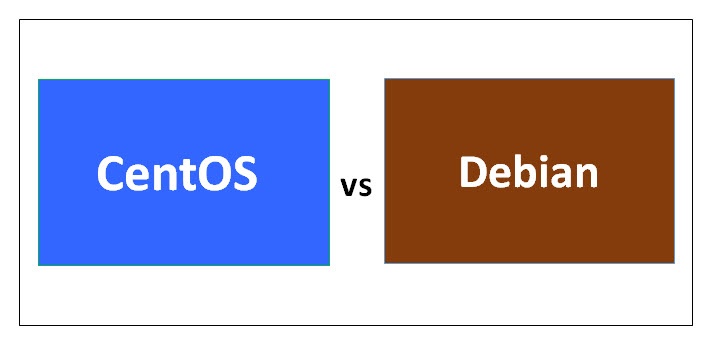Introduction
When it comes to setting up web servers, or Internet servers (web, email and ftp) there is usually two GNU/Linux distributions. That comes to mind, Debian and CentOS. Some people are starting to use the Ubuntu server, but let’s focus on CentOS vs Debian, as Ubuntu is a Debian derivative.
I think you should consider two main points when choosing a web server.
- Stability
- Software versions
- Easy of upgrades
CentOS
CentOS (Community Enterprise Operating System). It is a Linux distribution that attempts to provide a free enterprise-class computing platform that has 100% binary compatibility with its upstream source, Red Hat Enterprise Linux (RHEL). As of version 6.4, it officially supports x86 and x86-64 architecture with Physical Address Extension, while a beta is expected to be available for PowerPC.
So CentOS is a community-based Red Had Enterprise Linux operating system. It must be very stable and convenient to use it as a web server. In fact by the time of this writing, CentOS is the second most used distribution for web servers.
The Main Software versions of CentOs
By the time of this writing, the main software versions needed for web server applications in “vanilla” CentOS are:
- Apache -> 2.2.15
- PHP -> 5.3.3
- MySQL -> 5.1.66
- PostgreSQL -> 8.4.13
Upgrading
When choosing software, any type of software that is to be used in an environment. You should always consider how easy or hard it to upgrade it.
Consider that this server is almost for sure going to be located far from you, and you will only have SSH access to it.
Stability
CentOS is one of the most tested and stable GNU/Linux distributions, and that is why it is also one of the most used ones.
Debian
Debian is an operating system developed by the Debian project mostly composed of free and open source software carrying the GNU General Public License. However, it also includes non-GPL software outside its official repositories to comply with its guidelines of providing free software.
The Main Software versions of Debian
By the time of this writing, Debian Stable Wheezy has these software versions.
- Apache -> 2.2.22
- PHP -> 5.4.4
- MySQL -> 5.5.30
- PostgreSQL -> 9.1.9
Upgrading
Upgrading Debian from one stable version to the next stable version is easy and not hard.
Stability
The Debian’s release philosophy “Release when ready” makes it stable to the most, only when all bugs have been addressed, only when everything has been fully tested and only when everybody is sure that there are no issues, a new stable version is released. This makes Debian one of the most stable distributions available.
Now follow the main differences between CentOs and Debian.
Main Differences between CentOS and Debian
Both servers are popular choices in the market; Therefore let us discuss about some of the major differences:
- One should pick Debian as it generally has more up to date packages and because it is easier to upgrade to a newer version. A lot of people have started their GNU/Linux journey with Red Hat Linux, and they have always used CentOS and Fedora on their Desktop.
- If one is more used to CentOs and is more accustomed to working with it or have been using it for a long, then there is no real reason to migrate to Debian. CentOS vs Debian are both the best options one can have when choosing a GNU/Linux distribution to install on their web server or any other server.
- There is one more thing that one should keep in mind when installing a Web Server. If this server is going to be used as a reseller tool, he/she may want to install a tool called cPanel, and in such a case going with CentOS is recommended, as it is officially supported.
Conclusion
Finally, which one should you choose?
If you ask me about that I would pick Debian because it usually has more up-to-date packages, and because it is easier to upgrade. Both Linux distributions, Debian and CentOS, are commonly used and preferred by many developers based on their business needs. Both distributions handle different scenarios and are suitable for various applications.
Therefore, CentOS vs Debian both of them the best options you have when choosing a GNU/Linux distribution to install in your web server. They both:
- Have The most possible updated version of packages
- Are a very solid and stable GNU/Linux distribution
They are not equally easy to upgrade, but you only have to do so once every two to three years, so you should even be able to afford a fresh installation.
Update: June 5, 2013: One more thing you have to consider when installing a Web Server. If you are going to use this server as a reseller tool. You may want to install CPanel, and in such a case you have to go with CentOS, as it is officially supported.

